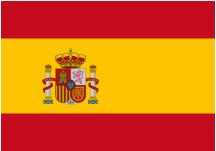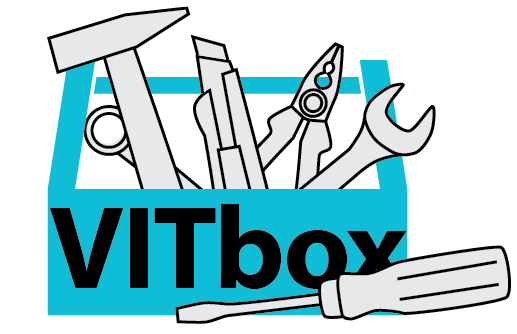News
12.08.2025
DECODE network meeting: discussing the importance of developing competences for democratic culture (CDC) in young learners through language education
Four DECODE project team members and their ECML consultant met with 19 teacher educators, teachers and researchers at the network meeting which was held at the ECML in Graz, Austria, on 24-25 June 2025. The participants were from Belgium, Bosnia and Herzegovina, Croatia, Germany, Greece, Ireland, North Macedonia, Slovenia, Spain, Sweden, and Switzerland.
During the two-day meeting, participants explored how to foster competences for democratic culture (CDC) in young learners through language education. On the first day, the team introduced the CDC model and discussed challenges in language education, the role of CEFR tools, and principles for developing CDC-related materials. A template for CDC materials was presented, and participants shared best practices and identified teachers’ needs. On the second day, they collaborated in groups to create and present initial CDC teaching materials, offering feedback on the template. Five of the network participants also shared highly interesting testimonials (see below) about CDC’s relevance in their professional contexts and the value of the DECODE project. The meeting strengthened understanding of CDC and highlighted the importance of collaboration for successful implementation of the DECODE project.
Authors: Emina Jelešković, Martina Kramar
- ECML project website “Developing competences for democratic culture for young learners through language education” (2024-26) (available in English and German): www.ecml.at/decode
- Video testimonials of network participants from Bosnia and Herzegovina, Greece, Germany, Ireland, and Sweden: see Recent developments
08.05.2025
La Consejería de Educación (Cantabria, Spain) organises in collaboration with the European Centre for Modern Languages the workshop "Beyond CLIL – Pluriliteracies Teaching for Deeper Learning".
This training activity is designed for teachers, teacher educators and educational administrators, aiming to establish a new framework for plurilingual development programmes in European educational institutions. The concept of "pluriliteracies" opens a highly relevant new horizon for professional development, where all educational stakeholders can find a theoretical foundation based on academic research, significant initial theoretical proposals, and a set of high-quality materials to apply directly in their respective educational contexts.
The workshop explores the possibilities offered by a sound structuring of an educational programme; the adoption by teachers of an appropriate content and linguistic perspective; and, finally, the planning of evidence-based classroom activities that provide an effective framework for action in any educational context. The key to the success of this workshop lies in starting from a well-established model like CLIL and evolving towards a new approach (Pluriliteracies for Deeper Learning) in which the most validated and advanced pedagogical proposals give meaning to a new way of implementing our teaching practice.
Authors: Eduardo Obradó Mancholas & Javier Barbero Andrés (Education Administration, Cantabria, Spain)
ESPAÑOL
La Consejería de Educación de Cantabria organiza en colaboración con el Centro Europeo para las Lenguas Modernas el taller Beyond CLIL – Pluriliteracies Teaching for Deeper Learning.
El Centro Europeo para las Lenguas Modernas ofrece el taller Beyond CLIL – Pluriliteracies teaching for deeper learning. Esta actividad formativa está pensada para docentes, formadores y responsables de administraciones educativas y trata de establecer un nuevo marco de actuación para los programas de desarrollo plurilingüe en los centros educativos europeos. El concepto de “pluriliteracies” abre un nuevo horizonte de desarrollo profesional muy relevante en el que todos los agentes educativos pueden encontrar un refredo teórico basado en investigaciones académicas, unas propuestas teóricas de partida muy significativas y un conjunto de materiales de alta calidad para poder aplicar directamente en sus respectivos contextos educativos. El taller explora las posibilidades que ofrece la estructuración razonable de un programa educativo; la adopción, por parte de los docentes, de una perspectiva de contenido y lingüística adecuada; y, finalmente, la programación de actividades de aula basadas en evidencias que proporcionan un marco de actuación eficaz en cualquier contexto educativo. La clave del éxito de este taller consiste en partir de un modelo ya contrastado como es CLIL para evolucionar hacia un nuevo enfoque (Pluriliteracies for Deeper Learning) en el que las propuestas pedagógicas más contrastadas y avanzadas dan sentido a una nueva forma de implementar nuestra acción docente.
Autores: Eduardo Obradó Mancholas y Javier Barbero Andrés (Consejería de Educación, Cantabria)
06.11.2024
National training workshop: Supporting multilingual classrooms (22 – 23 October 2024, Madrid, Spain)
Local organiser: Lourdes Ballesteros Martín and Ana Isabel Díaz García, Ministry of Education
ECML experts: Katja Schnitzer (Germany), Mercè Bernaus (Spain)
Participants: 21 (administrators, school heads, educational advisers)
On 22-23 October 2024, the External Educational Action Unit (UAEE) hosted an enriching workshop on Multilingual Classrooms, given by experts from the European Centre for Modern Languages (ECML), Katja Schnitzer and Mercè Bernaus. This event brought together educators and education professionals from various autonomous communities interested in promoting inclusion and learning in multilingual contexts.
The workshop, part of the cooperation between the ECML and the European Commission, focused on the development of learning environments that value and use linguistic diversity as a pedagogical resource. During the sessions, Mrs Schnitzer and Mrs Bernaus presented practical approaches to designing activities that encourage the active participation of learners, regardless of their mother tongue.
Among the topics discussed were the importance of inclusive methodologies, the role of language in students' cultural identity and the need to create a climate of respect and appreciation for all languages. Participants also explored teaching tools and resources that facilitate teaching in multilingual contexts, as well as strategies for involving families and the community in the educational process.
This workshop not only served to analyse and provide materials to the participants, but also to foster a space for dialogue and reflection on the challenges and opportunities presented by multilingual classrooms in the current educational context.
With this event, the UAEE reaffirms its commitment to the training of professionals who advocate for inclusive education and who recognise linguistic diversity as a fundamental pillar for the learning and integral development of students.
Lourdes Ballesteros Martín and Ana Isabel Díaz García, local coordinators, 5 November 2024
ECML project website: Supporting multilingual classrooms, ECML-EC cooperation agreement 2024 "Innovative methodologies and assessment in language learning"
27.07.2023
The ECML welcomes back Spain as a member State
 Spain has become the 36th member state of the Enlarged Partial Agreement on the European Centre for Modern Languages!
Spain has become the 36th member state of the Enlarged Partial Agreement on the European Centre for Modern Languages!
Following a formal decision taken by the Spanish Council of Ministers, Mr Juan Ignacio Morro, Spanish Ambassador Extraordinary and Plenipotentiary to the Council of Europe, notified the Secretary General, Marija Pejčinović Burić, of the country’s accession on 24 July – with the decision entering into force retroactively from 28 April 2023.
Spain was previously a member state of the ECML between 1999-2013.
Spanish language education professionals are welcome to submit project proposals for the Centre’s forthcoming “Language education at the heart of democracy” programme and will henceforth be able to fully participate in the Centre’s programme of activities.
Spain’s return comes at a particular auspicious time for the ECML, with the Centre presenting the initial results of its current programme at the “Inspiring innovation in language education” Conference on 13-14 December and embarking on a new four-year programme from January 2024.
18.09.2021
ECML VITbox project “CEFR Companion Volume Implementation Toolbox”: workshop during ACLES Conference (17 September 2021, Murcia, Spain)
 On 17 September 2021, the VITbox team ran a workshop on “The VITbox menu, a truly linguistic experience!” during the biennal conference of the Asociación de Centros de Lenguas en la Enseñanza Superior (ACLES) in Murcia (Spain). Participants were introduced to the VITbox resources and were invited to comment on the usefulness of the materials as well as reflect upon how they could adapt and apply them in their individual contexts.
On 17 September 2021, the VITbox team ran a workshop on “The VITbox menu, a truly linguistic experience!” during the biennal conference of the Asociación de Centros de Lenguas en la Enseñanza Superior (ACLES) in Murcia (Spain). Participants were introduced to the VITbox resources and were invited to comment on the usefulness of the materials as well as reflect upon how they could adapt and apply them in their individual contexts.
*****
The ECML VITbox project (2020-2023) is developing tools in various languages to help teacher educators use and disseminate the ideas of the CEFR Companion Volume. It will provide digital documents and examples of inspiring practice in the implementation of the Companion Volume in language learning, teaching and assessment at university and in vocational training.